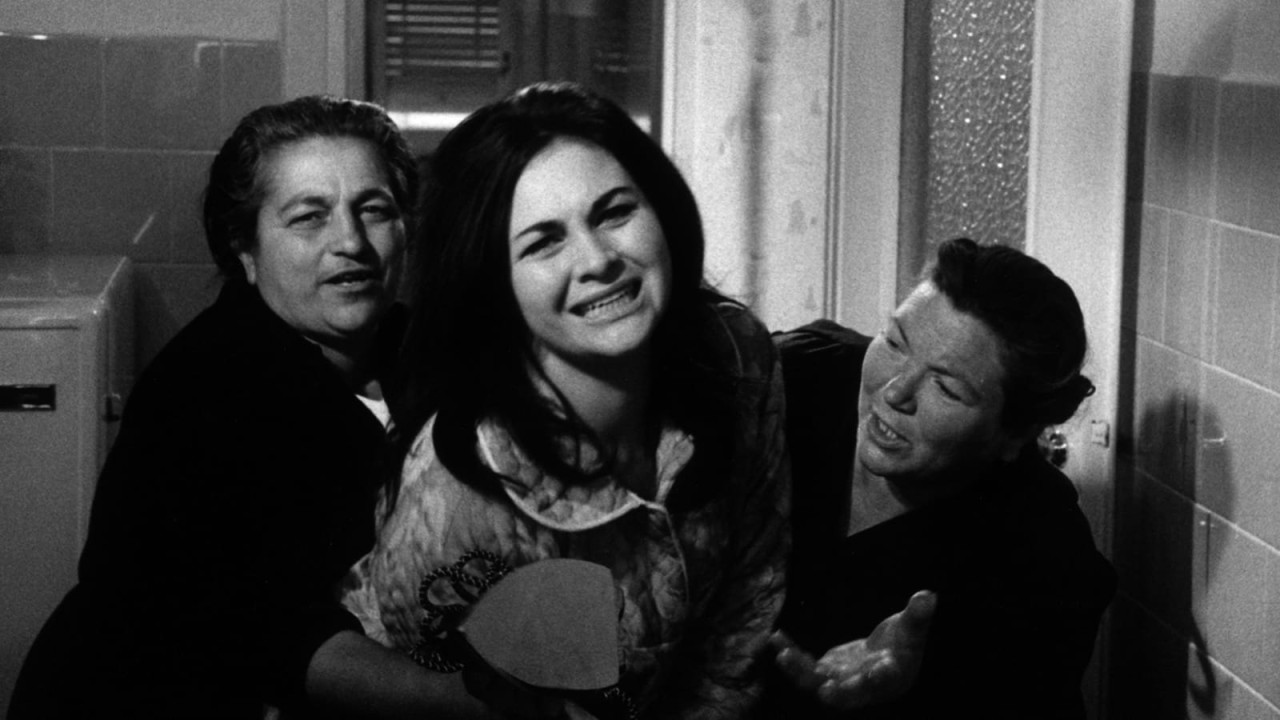La commare secca

The brutalized corpse of a Roman prostitute is found along the banks of the Tiber River. The police round up a handful of possible suspects and interrogate them, one by one, each account bringing them closer to the killer. In this, his stunning debut feature—based on a story by Pier Paolo Pasolini—Bernardo Bertolucci utilizes a series of interconnected flashbacks to explore the nature of truth and the reliability of narrative. The Criterion Collection is proud to present the first realization of a legendary talent.
Director-Approved Special Edition Features
- Restored high-definition digital transfer
- Interview with director Bernardo Bertolucci
- PLUS: An essay by film critic David Thompson
Cover by Michael Boland
Director-Approved Special Edition Features
- Restored high-definition digital transfer
- Interview with director Bernardo Bertolucci
- PLUS: An essay by film critic David Thompson
Cover by Michael Boland

Cast
- Carlotta Barilli
- Serenella
- Lorenza Benedetti
- Milly
- Clorinda Celani
- Soraya
- Giancarlo De Rosa
- Nino
- Vincenzo Ciccora
- Sindaco
- Alvaro d'Ercole
- Francolicchio
- Romano Labate
- Pipito
- Silvio Laurenzi
- Homosexual
- Alfredo Leggi
- Bustelli
- Santina Lisio
- Esperoa's mother
- Allen Midgette
- Teodoro, the soldier
- Ada Peragostini
- Maria
- Emy Rocci
- Domenica
- Wanda Rocci
- Prostitute
- Francisco Ruiu
- Canticchia
- Marisa Solinas
- Bruna
- Erina Torelli
- Mariella
- Renato Troiani
- Natalino
Credits
- Director
- Bernardo Bertolucci
- Story
- Pier Paolo Pasolini
- Screenplay
- Sergio Citti
- Producer
- Antonio Cervi
- Music
- Piero Piccioni
- Cinematography
- Giovanni Narzisi
- Editing
- Nino Baragli
- Costume design
- Adriana Spadaro
- Screenplay
- Bernardo Bertolucci













